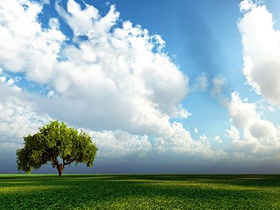Excerpt from Mr. Adnan Oktar’s live interview dated August 28, 2010
They found a slave of Ours whom We had granted mercy from Us and whom We had also given knowledge direct from Us. (Surat al-Kahf, 65)
Abjad calculation of this verse gives the date 2010. Hazrat Khidr (as) has knowledge belonging to him alone.
Moses said to him, “May I follow you on condition that you teach me some of the right guidance you have been taught?” (Surat al-Kahf, 66)
He said, “You will not be able to bear with me.” (Surat al-Kahf, 67)
Hazrat Khidr (as) says, “You may regard me as irreligious, as opposed to the sharia, as bombing and destroying places, as committing murder, and you will lack the patience to bear all this.”
“How indeed could you bear with patience something you have not encompassed in your knowledge?” (Surat al-Kahf, 68)
The appearance and essence of a matter are two different things. Hazrat Khidr (as) tells a Prophet “You could not bear this.”
Moses said, “You will find me patient, if Allah wills, and I will not disobey you in any matter.” (Surat al-Kahf, 69)
The Prophet Moses (as) says, “If Allah wills [InshaAllah].” These are the key words in Surat al-Kahf. The Prophet Moses (as) says this, and this is what Hazrat Khidr (as) is looking for.
He said, “Then if you follow me, do not question me about anything until I myself make mention of it to you.” (Surat al-Kahf, 70)
That means greater patience is necessary.
They continued until they boarded a boat and he scuppered it. Then Moses said, “Did you scupper it so that its owners would be drowned? This is truly a dreadful thing that you have done!” (Surat al-Kahf, 71)
Hazrat Khidr (as) speaks face to face, accepting no third party.
The Prophet Moses (as) says, “Did you intend mass slaughter? You have done something unlawful.” But Hazrat Khidr (as) acted out of revelation, and what he did was right.
He said, “Did I not say that you would never be able to bear with me?” (Surat al-Kahf, 72)
Hazrat Khidr (as) admits no other possibility, he says “never.” He does not say “it would be difficult,” he says “you would never be able.” That is because Allah tells him through revelation, beforehand. Allah tells Hazrat Khidr (as), through revelation, that the Prophet Moses (as) would not able to bear with him. Since he has been given revelation, he says he would certainly not be able to bear with him.
Moses said, “Do not take me to task because I forgot. Do not demand of me something which is too difficult.” (Surat al-Kahf, 73)
One of Hazrat Khidr’s (as) qualities is that he calls to account.
The Prophet Moses (as) says, “Do not demand of me something which is too difficult,” because Hazrat Khidr (as) may demand things difficult when necessary, as this is one of his characteristics.
So they went on until they met a youngster whom he killed. Moses said, “Have you killed a boy who has done no wrong, without it being in retaliation for someone else? This is truly an appalling thing that you have done!” (Surat al-Kahf, 74)
“You have killed and done wrong,” he says, but Hazrat Khidr (as) is acting out of revelation.
Moses said, “If I ask you about anything after this, then you should no longer keep me company. I will have given you excuse enough.” (Surat al-Kahf, 76)
Shortly after, Hazrat Khidr (as) retires having done his duty. He will not remain constantly in contact with the same place.
So they went on until they reached the inhabitants of a town. They asked them for food but they refused them hospitality. They found there a wall about to fall down and he built it up. Moses said, “If you had wanted, you could have taken a wage for doing that.” (Surat al-Kahf, 77)
Hazrat Khidr (as) has no need for food, but the Prophet Moses (as) does. Hazrat Khidr (as) can eat or not, as he pleases.
The people of the town are wary of their majesty.
He immediately builds the wall. Hazrat Khidr (as) is a master stonemason, and this is also one of his attributes. This means placing all masons under his control, all of them being under his command, and they have done so, insha’Allah.
Hazrat Khidr (as) asks for no reward. That is an attribute of his, he requests neither food, nor money nor anything. A human being needs things, but he needs nothing. He does not need to sleep or eat. His having no need of anything is one of the signs of Hazrat Khidr (as).
TOPICS
CavourVaticanSocialismIlluminationFrench RevolutionConvertSabbateanJacobinismMasonic MediaPolitical ZionismYoung TurkThe Committee of Union and ProgressAbdulhamidAnti-NaziWorld Zionist Organization Nuremberg LawsMussoliniWorld War IAdolf EichmannGoyimThe Rothschild DynastyThink-ThankCFRRockefellerCold WarStalinOctober RevolutionSoviet UnionBilderbergVietnamAIPACLobbyfairSoutheastGreeceNew World OrderRed Seageopoliticsveterantaxcustoms2023antelopebullEurasia Islam CouncilNobel PrizeHospitalSocial Security InstitutionAli BabacanTurgut OzalassassinationGaffar OkkanMuhsin YazıcıoğluRosetta NebulaAstronomyRoseDamascus Sermonnuclear weaponIyad AllawiNautilussubmarinediving cellAli BardakogluTelevisionTelevoleCanakkale


